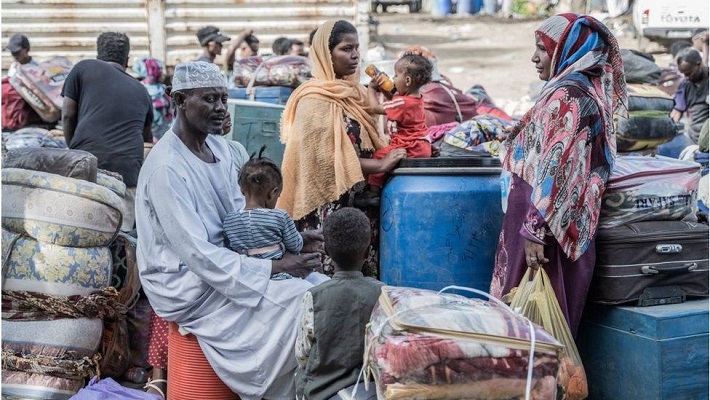By Paschal Norbert
KHARTOUM, MAY 12, 2023 (CISA) – “Clashes between the Sudan Armed Forces (SAF) and the Rapid Support Forces (RSF) have continued for 26 consecutive days, especially in and around Khartoum, as of 10 May. At least 604 people have been killed and over 5,100 injured since the fighting began, according to the Federal Ministry of Health (FMoH) as of 9 May. Out of these, 199 deaths and 3,157 injuries were in Khartoum. In addition, in West Darfur, at least 450 people died during recent violent clashes in Ag Geneina and surrounding areas, according to FMoH,” says the United Nations Office for the Coordination of Humanitarian Affairs (OCHA) Situational Report dated May 10.
According to the Sudan INGO Forum, which is comprised of 70 INGO members and observer members providing humanitarian and development assistance and peacebuilding interventions across Sudan, the ongoing violence has directedly impacted aid operations and is preventing life-saving assistance from reaching millions in need.
“Five humanitarian workers have been killed, others injured, and humanitarian premises, supplies and vehicles have been looted. Whilst NGOs are making every attempt to continue reaching people in need where it is safe to do so, many vital programmes and services have been suspended with potentially devastating consequences for the millions of people who rely on humanitarian aid,” said the Sudan INGO Forum.
These observations as shared by OCHA reveal that humanitarian actors continue to work on expanding humanitarian operations and reaching those most in need, however, recent developments have seen further looting and attacks against their premises, thus, significantly hampering the response.
In light of these developments, the NGOs are appealing to the conflict parties to ensure respect for International Humanitarian Law including the protection of civilians and vital infrastructure.
They are also calling for the protection of aid workers and assets, unimpeded humanitarian access, reduction of administrative procedures to expedite the delivery of humanitarian assistance and facilitation of entry of humanitarian workers into the country without delay.
“Additional resources, such as Civil-Military Coordination, humanitarian negotiations specialists and increased security analysis will also be required to support humanitarian organisations reach people in need,” appealed the AID agencies.
“Additional and flexible humanitarian funding to facilitate an urgent humanitarian response to the escalating needs. Donors must be prepared to redirect existing programmes in Sudan to meet critical gaps, provide sufficient flexibility to organisations to adapt to the new operational challenges and provide support to local and national actors, including emerging community-led initiatives who are providing critical frontline response,” they implored.
According to OCHA, the clashes between the Sudanese Armed Forces (SAF) and the Rapid Support Forces (RSF) that erupted on April 15, 2023, are having devastating consequences for civilians. About 730,000 people are estimated to have been internally displaced, and over 150,000 people have fled to neighbouring countries.
In Khartoum, 61 per cent of health facilities are closed and only 16 per cent are operating at normal, leaving millions of people without access to health care. Prices of food, fuel and other basic goods are also reportedly skyrocketing, making critical goods unaffordable for many people.
